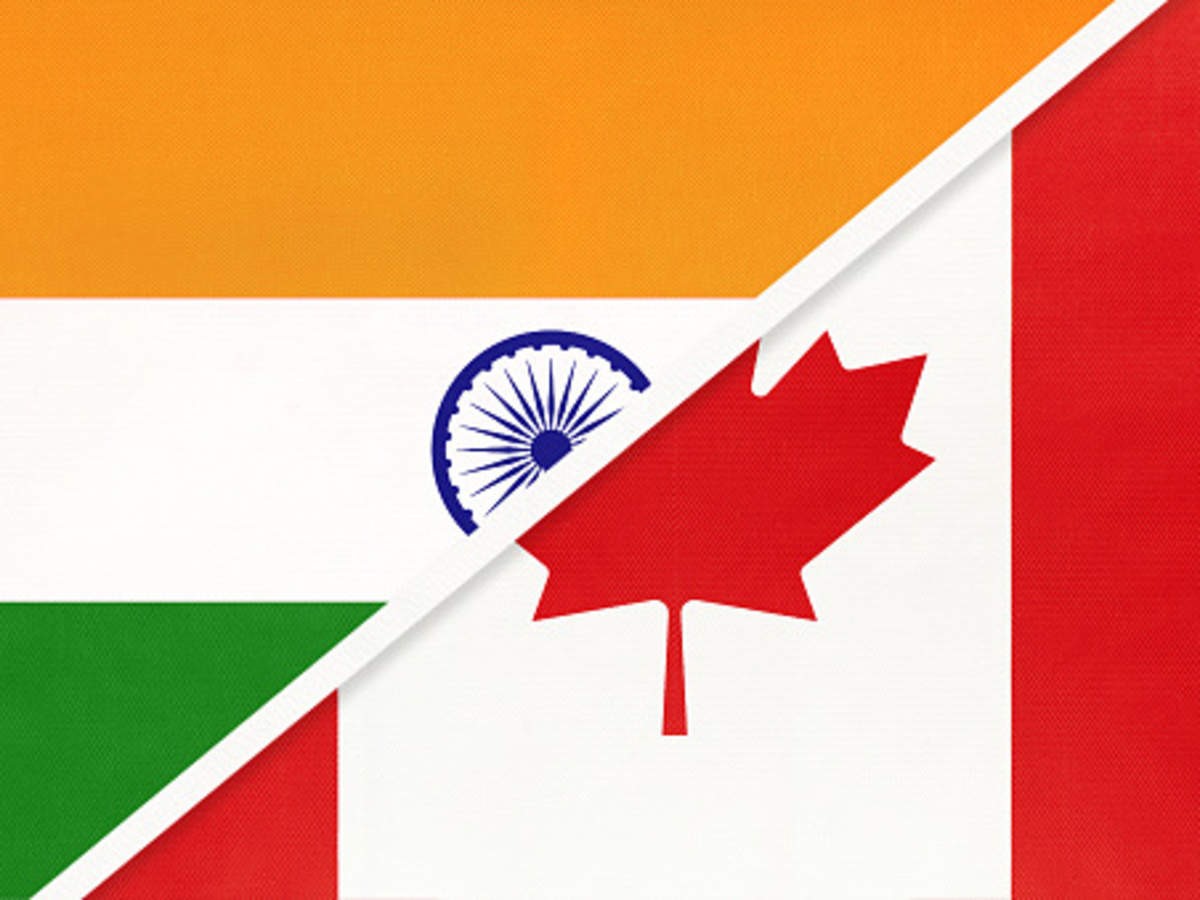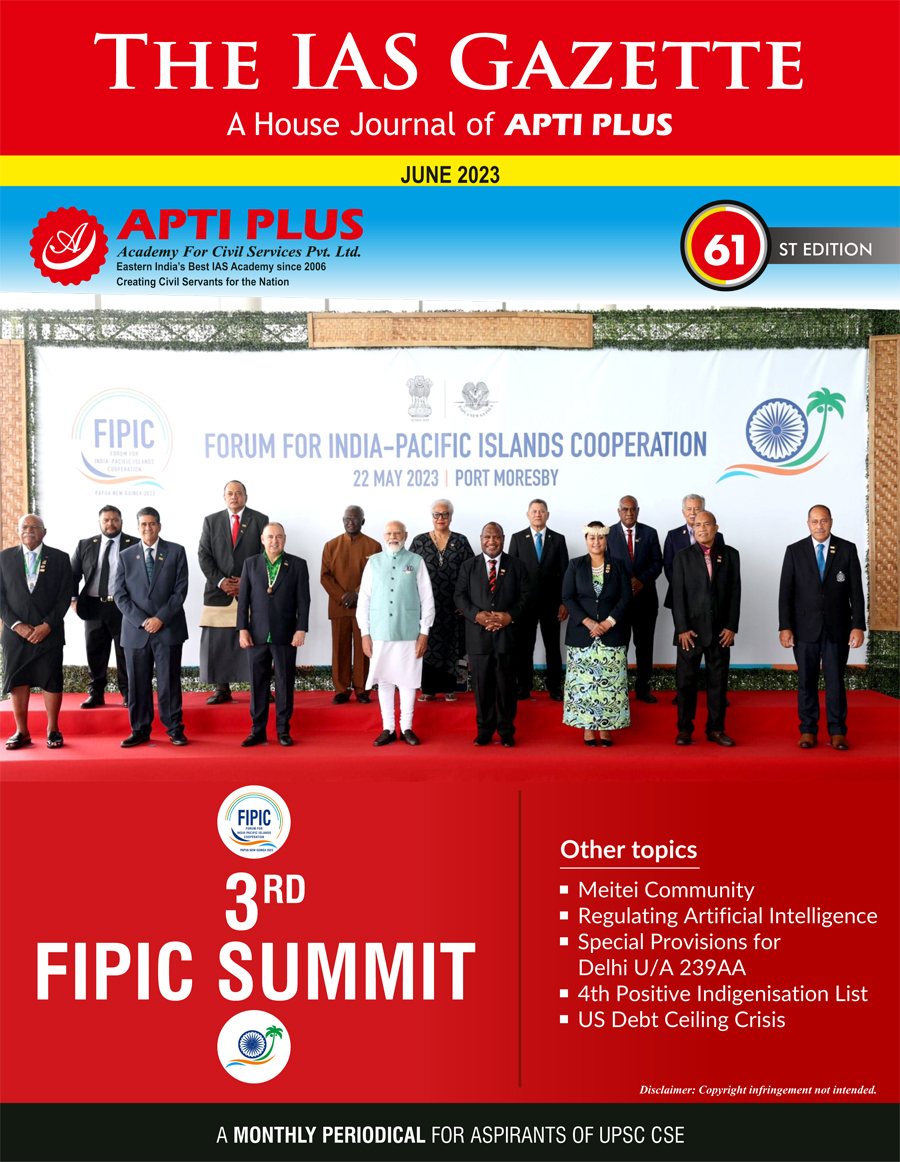Description

Disclaimer: Copyright infringement not intended.
Context
- India summoned Canadian High Commissioner Cameron MacKay to convey concerns ahead of protests by pro-Khalistan terrorist outfits outside the Indian High Commission in Ottawa.
India-Canada Relations
Overview
- India-Canada bilateral ties are underpinned by shared values of democracy, pluralism, expanding economic engagement, regular high-level interactions, and long-standing people-to-people ties.
- Canada is home to one of the largest communities of Indian origin, with approximately 4% of Canadians being of Indian heritage (1.4 million people).
- The deep cultural and political ties between Canada and India are strengthened by a growing network of official dialogues, agreements, memoranda of understanding, and working groups.
- At the Ministerial level, Canada and India enjoy a strategic partnership underpinned by Ministerial Dialogues on:
- Foreign policy
- Trade and investment
- Finance
- Energy
- At the Official Level, there are regular working groups that focus on:
- Counter-terrorism
- Security
- Agriculture
- Education
- Science and Technology
- In India, Canada is represented by the High Commission of Canada in New Delhi. Canada also has Consulates General in Bengaluru, Chandigarh and Mumbai, as well as trade offices in Ahmedabad, Chennai, Hyderabad and Kolkata.
- In addition, Immigration, Refugees and Citizenship Canada (IRCC) has a significant presence in India; the High Commission in New Delhi is, in fact, home to Canada’s largest visa office abroad.
- India is represented in Canada by a High Commission in Ottawa and by consulates in Toronto and Vancouver.
Trade Relations
- A priority market for Canada, in 2022, India was Canada’s 9th largest trading partner.
- India will be a key partner as Canada strengthens its economic links to the Indo-Pacific under a new, comprehensive strategy for the region.
- Canada and India are working toward a Comprehensive Economic Partnership Agreement and a Foreign Investment Promotion and Protection Agreement (FIPA), and are committed to regularly holding Ministerial Dialogue on Trade and Investment to explore ways to deepen the commercial relationship.
- Canada also has an advanced suite of bilateral agreements and MOUs with India that touch on commerce, including:
-
- Nuclear cooperation
- Double taxation
- Science and technology
- Agriculture
- Civil aviation
- Energy
- Education
- Information and communications technologies
- Canada’s commercial priorities in India are targeted at the country’s policy objectives and sectors where Canada has a comparative advantage. These priorities include:
-
- Supporting India’s energy security and environmental ambitions through increased exports of renewable energy and clean technology, with a focus on bioenergy, wind, hydro, and solar, as well as water and sewage treatment;
- Helping India meet its substantial urban and transportation infrastructure needs for roads, rail, airports, ports, dams, and services segments through the provision of financing, equipment, technology, and engineering services;
- Promoting commercial research and development and collaboration to drive innovation in sectors such as information and communications technologies, science, technology and innovation, digital industries, artificial intelligence, deep technology, machine learning, and the Internet of Things (IoT);
- Increasing the exports of food products and fertilizers to support India’s food security needs with a focus on value-added products and expertise in food supply and cold chain management;
- Focussing on opportunities for Canadian partnerships as suppliers in the Life Sciences sector to support India’s industry-leading presence in the pharmaceutical sector;
- Integrating Canadian companies into India’s automotive supply chains.
- Since 2018, India has been the largest source country for international students in Canada.
- Engagement with India in education is a priority for Canada, with a focus on enhanced education and skills training through greater collaboration between Canadian and Indian educational and technical skills institutions.
Major Exported Items from India to Canada
- India exported 4,504 commodities to Canada in 2022.
- Major exported items from India to Canada include drug formulations and biologicals; followed by products of iron and steel; articles of iron and steel in 2022.
Major imported items by India from Canada
- India imported 1,629 commodities from Canada in 2022.
- Imports from Canada to India were valued at US$ 2.6 billion in 2022.
- Major India's imports from Canada include coal, coke, briquettes, etc; followed by fertilizers manufactured, during in 2022.

Partnerships and organizations
- To develop effective responses to today’s most pressing global challenges, Canada and India work closely in multilateral fora, such as:
- International Civil Aviation Organization (ICAO).
- Pacific Alliance.
- United Nations (UN).
- United Nations Educational, Scientific and Cultural Organization (UNESCO).
- World Trade Organization (WTO)
Recent Trends and Developments
- India and Canada decided to consider the interim agreement and the 5th ministerial dialogue on trade and investment was held on March 11, 2022.
- The Ministers agreed to formally re-launch the negotiations for India-Canada Comprehensive Economic Partnership Agreement (CEPA) and also consider an Interim Agreement or Early Progress Trade Agreement (EPTA) that could bring early commercial gains to both countries.
- The Early Progress Trade Agreement (EPTA) between India and Canada is likely to be clinched in the second half of 2023 India and Canada have been in negotiations to finalize a Foreign Investment Promotion and Protection Agreement (FIPA).
- Two MoUs were renewed at the 7th India-Canada Joint Science and Technology Cooperation Committee (JSTCC) meeting that took place in Ottawa, setting priorities for the next period in a variety of innovative fields. The focus areas of the collaboration include national missions, quantum computing, artificial intelligence (AI), and cyber-physical systems, among others. Many Indian students studying in Canadian universities will benefit from the collaboration.
- Canada has agreed to examine the request for Conformity Verification Body (CVB) status to APEDA (Agricultural and Processed Food Products Export Development Authority) for the hassle-free export of Indian organic products
Economic Relations
- More than 600 Canadian companies and organizations have established a presence in India.
- Hundreds more are actively pursuing business opportunities there. The bilateral commercial relationships between the two countries stand at US$100 billion, which includes US$70 billion of Canadian portfolio investment into India.
- In 2020, Canadian direct investment in India amounted to US$2 billion. Canadian portfolio investment in India is estimated to have grown more than 50% over the past five years, reaching about US$27 billion.
- As of March 2021, Canada invested nearly US$ 24 million in 2018-2019 to support 75 projects in India via Grand Challenges Canada. The main programming sector of the Partnerships for Development Innovation Branch is maternal, newborn, and child health, which includes support for early childhood development.
- IDRC continues to have an active presence in India with projects focusing on the links between climate change and migration; the reduction of violence against vulnerable populations; women’s rights, security and access to justice; economic opportunities for Indian workers, especially women; and improving food security. Since 1974, IDRC has programmed US$ 143 million in India
Energy Cooperation
- Energy has been a primary area of our focus, considering that Canada is an ‘energy superpower’ with one of the world’s largest resources of uranium, natural gas, oil, coal, minerals and advanced technologies in hydropower, mining, renewable energy and nuclear energy.
Civil Nuclear Cooperation
- A Nuclear Cooperation Agreement (NCA) with Canada was signed in June 2010 and came into force in September 2013.
- The Appropriate Arrangement (AA) for the NCA was signed in March 2013, under which a Joint Committee on Civil Nuclear Cooperation was constituted.
Science and Technology
- Indo-Canadian S&T cooperation has been primarily focussed on promoting Industrial R&D which has potential for application through the development of new IP, processes, prototypes, or products.
Biotechnology
- Department of Biotechnology (DBT) under the IC-IMPACTS program implements joint research projects in health care, agri-biotech and waste management.
Information Technology
- A Memorandum of Understanding on Cooperation in Information and Communication Technology and Electronics (ICTE) was signed in 2012 for 5 years.
Space
- India and Canada are pursuing successful cooperative and commercial relations in the field of Space since the 1990s mainly on space science, earth observation, satellite launch services and ground support for space missions.
Education
- Education is a key area of mutual interest. Recently India became the top source of foreign students with 230,000 Indian students studying in Canada. There are about 300 MoUs between institutions of higher learning in India and Canada.
- The MoU on Higher Education (2010) with Canada was renewed in February 2018.
- The Shastri Indo-Canadian Institute (SICI)is a unique bi-national organization fostering, since 1968, education and cultural cooperation and collaboration between India and Canada.
Defence
- India and Canada collaborate closely in international fora, particularly through the UN, Commonwealth and G-20.
Security Cooperation
- The two countries signed a Mutual Legal Assistance Treaty in 1994 (operationalized in 1998) and Extradition Treaty in 1987. The Joint Working Group on Counter Terrorism was set up in 1997.
- There is substantial engagement on counter-terrorism issues particularly through the framework of the Joint Working Group (JWG) on Counter-Terrorism.
Agriculture
- The bilateral MoU on agriculture cooperation was signed at the federal level in 2009. A Joint Working Group has been set up under the MoU.
Track 1.5 Dialogue
- India-Canada has established a Track 1.5 Dialogueon involving experts, government officials, and business leaders from both sides to explore the possibility of future cooperation
Cultural Exchanges
- Given that people-to-people ties form the bedrock of the India-Canada relationship, cultural exchanges remain vital.
ISSUES IN INDIA-CANADA RELATIONS: https://www.iasgyan.in/daily-current-affairs/recent-developments-in-india-canada-relations

Area of Friction: Khalistan Movement
Background of the Khalistan Movement:
- The Khalistan movementaims to establish a separate Sikh state called Khalistan.
- The movement originated in the 1970s and 1980s in Punjab, India.
- The first declaration for a separate Sikh state was made in the United States in 1971.
Support for Khalistan in the Sikh Diaspora:
- The movement finds resonance among certain segments of the Sikh diaspora living in countries like Canada, the US, and the UK.
- The diaspora includes individuals who chose to leave Punjab, particularly during the peak of the movement when the Indian state took strong actions against Khalistani separatists.
- Memories of the past and historical grievances have kept the movement alive among some members of the Sikh diaspora.
Resonance of Khalistan within the Sikh Population in India:
- Support for Khalistan within the Sikh population in India has significantly diminished over time.
- Ground realities in Punjab today differ from the circumstances during the peak of the movement.
- The movement is sustained within the diaspora due to a lack of connection to the current situation in Punjab.
Role of External Support for Khalistan:
- The Khalistan movement has received material support from external sources, including countries like Pakistan and China.
- Chinese-made RPGs were found in the possession of Khalistani militants during the insurgency in Punjab.
- Some countries tolerate, subsidize, and assist the Khalistan movement as a means to destabilize India.
Canada as a Hub for Khalistan Supporters:
- Canada has been considered a safe haven for Khalistan supporters and individuals accused of terrorism in India.
- The Canadian Sikh population, particularly in places like Brampton, has been associated with the Khalistan movement.
- Canadian politicians have faced criticism for pandering to Sikh extremists due to their significant voting power.
Condemnation and Concerns:
- The Indian government has consistently expressed concerns about anti-India activities and urged Canada to take action against such activities.
- External Affairs Minister S Jaishankar condemned a parade held in Brampton, Canada, which depicted the assassination of former Indian Prime Minister Indira Gandhi.
- Many individuals, both within India and abroad, have called for universal condemnation and a united response against extremism.
Recommendations
- Continue investigating and prosecuting radical Khalistan supporters who provide financial and material support to Khalistan terror groups operating in India.
- Work with social media platforms and web providers to monitor and shut down the sites of groups and individuals with ties to Khalistan terror groups and those who advocate violence in furtherance of Khalistan or make threats against residents or visiting Indian officials.
- Pressure the Government of the Islamic Republic of Pakistan to end its support of Khalistan terror groups and US-based pro-Khalistan lobbying organizations.
- Continue conducting investigations and prosecuting cases involving any and all individuals responsible for planning, participating in, or failing to stop the killings of Sikh civilians during the 1984 anti-Sikh pogrom.
- Continue to provide monetary assistance to the families of the victims of the 1984 anti-Sikh pogrom and any other support as needed.
- Provide information and assistance to government officials and law enforcement agencies to support the investigation and prosecution of radical Khalistan supporters who provide financial and material support to Khalistan terror groups operating in India.
- Continue efforts to clamp down on Khalistani militant groups operating in India and counter radical Khalistan propaganda on social media and other platforms.
|
PRACTICE QUESTION
Q. In the India-Canada friendship, Khalistan remains the sore point. Describe the Khalistan issue and give appropriate recommendations to address the issue.
|
https://www.indiatoday.in/india/story/canada-assures-safety-of-indian-diplomats-ahead-of-khalistan-freedom-rally-2401519-2023-07-04















